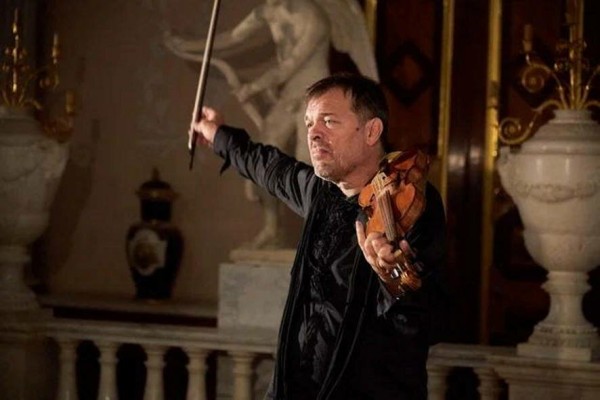-

The blurred reality of Russian patriotism
One might be forgiven for thinking that Russia’s ‘creative classes’ are united in their opposition to Putin and the war. This isn’t actually the case. As in the country’s past, a powerful patriotic and nationalist movement coexists alongside the rather weaker liberal, pro-Western one. And it’s not just musicians and singers who are touting the patriotic line.
-

Ukraine: the more war changes, the more it stays the same
As the Russia-Ukraine war nears its first anniversary, what has become clear is that despite all the technological paraphernalia of modern warfare, over the past 100 years very little has changed in the way that large-scale armies fight one another. It’s still a matter of assembling the biggest possible force and firing off as much ammunition as your factories and stockpiles will permit.
-

What can Nikolai Danilevsky teach us about today’s struggle between East and West?
November 28 marks the 200th birthday of Russian philosopher, naturalist, and economist Nikolai Danilevsky. Relatively unknown in the West, Danilevsky is extraordinarily influential in modern Russia, and understanding his ideas is essential to grasping the essence of the current political conflict between Russia and the West.
-

Financial war and its discontents
It remains to be seen whether it is legally possible to confiscate and redistribute Russian funds. But even if it is, one may doubt whether it is wise. Little by little, such acts have the effect of sending a message that the international financial system is subservient to Western political interests, writes professor Paul Robinson.
-

Russia ups the ante in Ukraine
It would be a rash analyst who dared to predict how this current war will turn out. About the only thing of which one can be confident is that it will continue for a long time yet—certainly many months, and perhaps even years, until the two sides reach a point of mutual exhaustion. Every war must end, but at present this one’s ending seems to be far out of sight.
-

Mikhail Gorbachev’s misunderstood legacy
Mikhail Gorbachev meant well. An idealist, he believed in communism’s humanist potential. Realizing that communism’s practice fell short of its promise, he sought to do something about it. In the process, he unleashed hidden forces that destroyed the system he hoped to revive. For better or for worse, we are still living with the consequences today.
-

Putin’s ‘ally’: a case of misreporting
Were just one media outlet to have characterized Dugin incorrectly it would be a simple case of poor reporting. The fact that almost the entire Western press corps has done so is indicative of a more systemic failing. The impoverished picture one gets of the world as a result of this failing leads to ill considered policies, grounded in ignorance.
-

Status anxiety and the war in Ukraine
States seek status, and those who have risen to the top feel a need to put anyone who might challenge them firmly in their place. Russia’s invasion of Ukraine is such a challenge. Ever since the Maidan revolution of 2014, the West has determined that Ukraine lies within its own sphere of influence. By arguing otherwise, Russia is challenging the West’s honour.
-

Russia at a turning point?
At the end of the Cold War there was much debate between proponents of two models of the world’s future development. For Russians this debate reflected their own long-lasting dispute between Westernizing liberal determinists and conservative believers in distinct paths of civilizational development. The latter have won the day, and there may be no turning back.



